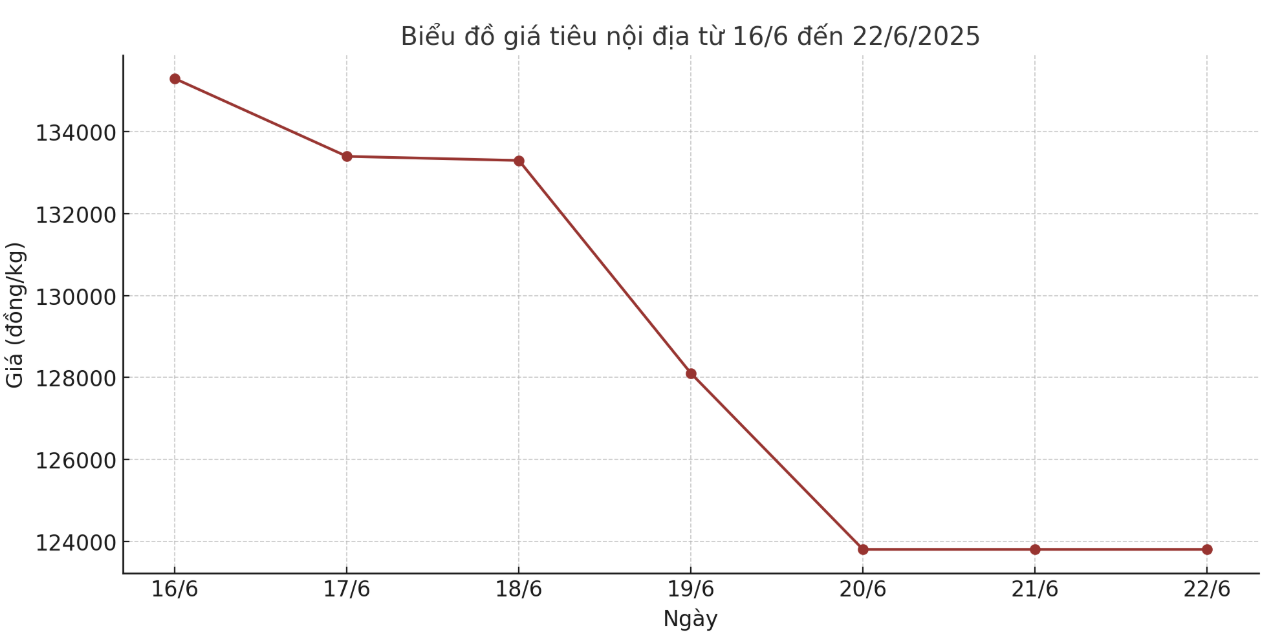Domestic pepper prices: Unstoppable slide week
As of 11:15 today (6.22), domestic pepper prices are trading between 123,000 - 125,000 VND/kg, down 13-14,000 VND/kg compared to last week.
In Dak Lak and Dak Nong provinces, traders are currently purchasing pepper at 125,000 VND/kg, down 13,000 VND/kg and 12,000 VND/kg respectively compared to last week.
In Gia Lai province, another locality in the Central Highlands region, pepper prices are currently at 123,000 VND/kg, down 14,000 VND/kg.
In the provinces in the Southeast region such as Ba Ria - Vung Tau, Dong Nai and Binh Phuoc, pepper prices also decreased by 14,000 VND/kg last week, currently to 123,000 VND/kg.

World pepper prices: Strong fluctuations, red trading floors
In the world market, pepper prices of leading manufacturing countries have decreased sharply in the past week. According to the International Pepper Company (IPC), Indonesia's export black pepper prices are being offered for sale at 7,461 USD/ton, down 39 USD/ton compared to last week. Indonesia's white pepper prices were recorded at 10,079 USD/ton, down 53 USD/ton compared to last week.
Meanwhile, Vietnam's white pepper price stood at 9,000 USD/ton, down 300 USD/ton.
Similarly, the price of ASTA 570 black pepper in Brazil decreased by 125 USD/ton, to only 6,050 USD/ton.
In addition, Malaysia's black pepper prices fell by $100/ton to $9,000/ton. Malaysia's white pepper price reached 11,750 USD/ton, down 100 USD/ton.
Notably, Vietnam's export price of black pepper decreased by 300 USD/ton last week, down to only 6,000 - 6,100 USD/ton for the 500 g/l and 550 g/l type.
Assessment and forecast
After a sharp decrease of more than VND10,000/kg last week, the pepper market is reaching a short-term support zone around VND123,000/kg. Many experts say that pepper prices next week will depend on the collection of goods from exporting enterprises and demand developments in major markets such as China, India and the US.
World pepper prices are still under pressure from inventories after the crop and demand has not shown any signs of exploding. Countries such as Indonesia and Malaysia keep prices high but do not boost exports, while Vietnam continues to keep prices stable.











